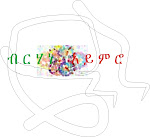Indiana University Press: "In Truth and Genesis, Miguel de Beistegui considers the role and meaning of philosophy today. Calling for a new departure for philosophy, one that brings together philosophy's scattered identities, de Beistegui proposes a robust and unified philosophy that would find itself equally at home in artistic and scientific disciplines. To build this renewed philosophy, de Beistegui turns to Aristotle and the earliest foundations of thought. He traces philosophy's development through the medieval and modern periods before comparing and investigating the work of two of the 20th century's most influential thinkers, Martin Heidegger and Gilles Deleuze. In particular, de Beistegui focus es on Deleuze's Difference and Repetition and Heidegger's Contributions to Philosophy for their handling of the concept of difference. De Beistegui concludes that Deleuze and Heidegger are irreconcilable, but it is in their disagreements that he sees a way to liberate philosophy from its current crisis. " ***These days I am looking into this book, Miguel de Beistegui's Truth and Genesis... ("beautiful mind") Since he refers to Deleuze a lot ( In my Philosophy Irrfahrt...I lost track of him after I began to get acquainted to his ideas some years back) I wanted to know more about him and I came across the attached interesting Document, which I like. If you want, take a moment please to throw a glance or more. It is worth it.(He has much to say on "becoming" . The way his ideas are presented here -its form- is also agreable)...... From.....
L'Abécédaire de Gilles Deleuze, avec Claire Parnet
Directed by Pierre-André Boutang (1996)
http://www.langlab.wayne.edu/CStivale/D-G/ABC2.html#anchor18379Directed by Pierre-André Boutang (1996)
....philosophy is like [painting with] colors
.....because philosophy is like [painting with] colors, before entering into it, one has to take so many precautions, before conquering the "philosophical color"
....................
A third order of things, a kind of connection among them all, are affects. Deleuze says that, of course, there are no percepts without affects, but that these are specific as well: these are becomings that exceed him or her who goes through them, exceed the strength of those who go through them. Doesn't music lead us into these forces
http://www.langlab.wayne.edu/CStivale/D-G/ABC3.html
